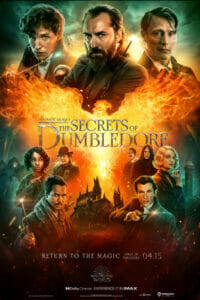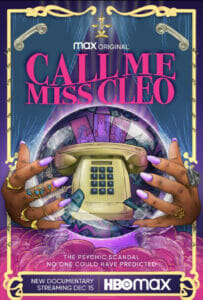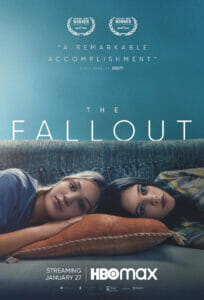SUMMARY
Considering the quality, quantity, and diversity of films distributed under Warner Bros. Discovery and its labels, GLAAD has given Warner Bros. Discovery an INSUFFICIENT grade.
In theatrical releases, LGBTQ representation was minimal in most films, with small moments in Elvis and DC’s League of Super-Pets including blink-and-you’ll-miss it LGBTQ inclusion. The Batman included a very ambiguous interpretation of Selina Kyle, and could have easily confirmed her bisexuality to easily center LGBTQ representation, but failed to do so. Unfortunately, the theatrical film with the most LGBTQ inclusion was Fantastic Beasts: The Secrets of Dumbledore, which – despite its inclusion of gay characters – elevates and funds the voice of JK Rowling, who routinely spreads dangerous misinformation about transgender people.
In Warner Bros.’ streaming catalog on Max, there was much more inclusion present. From the teen queer characters in drama The Fallout, to inclusion in documentaries such as Call Me Miss Cleo and Santa Camp, these films center diverse LGBTQ stories. There is, however, room for improvement in romantic comedies like Moonshot and Father of the Bride, where casual inclusion was present but minimal.
Overall, GLAAD hopes to see Warner Bros. Discovery give the greenlight to LGBTQ-centric theatrically released films at the same level it has for streaming. This is especially notable when it comes to the DC properties, where there are several queer characters in the comics and beyond that have yet to make it to the big screen. It’s also worth noting that Batgirl was one of this report’s highly anticipated DC films for its trans inclusion and it is immensely disheartening for that film to get shelved while less inclusive films make it to theaters.
HISTORY
Founded by four Polish immigrant brothers as a movie theater business in the early 1900s, Warner Bros. evolved into a film production studio in 1923. Warner Bros. merged with Discovery, Inc. to form Warner Bros. Discovery in April 2022. In February 2023, Warner Bros. amended its initial plan to merge Discovery+ with HBO Max, now known as Max. As a result, Max will include “most” Discovery content and Discovery+ will remain an operational stand-alone streaming service. Warner Bros. has produced several acclaimed films, including Casablanca, A Clockwork Orange, Goodfellas, the blockbuster Harry Potter franchise, and multiple DC Comics adaptations.
One of Warner Bros. most infamous films, Rebel Without a Cause (1955), featured Sal Mineo as the tragic character Plato, one of film’s earliest recognizable gay-coded characters. In the decades since, the studio has released several LGBTQ inclusive films, such as Dog Day Afternoon (1975), The Color Purple (1985), Interview with the Vampire (1994), and Midnight in the Garden of Good and Evil (1997); nearly all of which were based on external source material that included LGBTQ characters. Notably, many Warner Bros. films in the 2010s featured an abundance of unwarranted gay panic jokes and other cheap punchlines, seen in films such as Get Hard (2015), Central Intelligence (2016), and CHiPs (2017). More positive recent LGBTQ-inclusive releases from Warner Bros. include Alexander (2004), Kiss Kiss Bang Bang (2005), V For Vendetta (2005), J. Edgar (2011), Tammy (2014), Storks (2016), Crazy Rich Asians (2018), Isn’t It Romantic (2019) and Birds of Prey (2020), In the Heights (2021) and more. Max’s previous LGBTQ-inclusive films include GLAAD Media Award nominees La Layenda Nedra (2020) and Unpregnant (2020), as well as the documentaries LFG (2021) and Eyes on the Prize: Hallowed Ground (2021).


 The third film in the
The third film in the  This documentary about the famous TV psychic Miss Cleo portrays her relationship with her lover, Lou, another woman. Matt Sheridan, a trans man who was with Cleo before he transitioned, is also interviewed. Cleo is shown hosting Pride events and pivoting to focus on LGBTQ advocacy later on in her life. The film includes extensive interviews with out celebrity
This documentary about the famous TV psychic Miss Cleo portrays her relationship with her lover, Lou, another woman. Matt Sheridan, a trans man who was with Cleo before he transitioned, is also interviewed. Cleo is shown hosting Pride events and pivoting to focus on LGBTQ advocacy later on in her life. The film includes extensive interviews with out celebrity  This GLAAD Media Award-nominated drama follows Vada, a teen girl who survives a shooting at her high school, and explores how the tragedy affects her and her peers. During the shooting itself, Vada is trapped in a bathroom with two other students, Mia and Quinton, the latter of whose brother dies in the shooting. Though Mia, a dance influencer, is not friends with Vada at the start, the two grow closer over the course of the film bonded by their shared trauma. They drink and partake in drugs together while Mia’s two dads are out of town. During one of those nights, they start kissing and sleep together, a first for both of them. Vada doesn’t want to ruin their friendship by pursuing anything more, but both girls say they don’t regret it. Vada later tries to kiss Quinton, but he says he’s not ready for a relationship. The film shows these kids seeking out connection for their mental health when no one else understands what they’ve been through. Vada and Mia’s queerness isn’t represented as part of their trauma, simply as a facet of their identity. The film even includes a coming out scene when Vada tells her mom that she slept with a girl and not a boy and her mom accepts this. Vada’s friend Nick, who is gay, is also shown in the beginning of the film, but then he and Vada drift apart as he embraces activism after the shooting while she does not.
This GLAAD Media Award-nominated drama follows Vada, a teen girl who survives a shooting at her high school, and explores how the tragedy affects her and her peers. During the shooting itself, Vada is trapped in a bathroom with two other students, Mia and Quinton, the latter of whose brother dies in the shooting. Though Mia, a dance influencer, is not friends with Vada at the start, the two grow closer over the course of the film bonded by their shared trauma. They drink and partake in drugs together while Mia’s two dads are out of town. During one of those nights, they start kissing and sleep together, a first for both of them. Vada doesn’t want to ruin their friendship by pursuing anything more, but both girls say they don’t regret it. Vada later tries to kiss Quinton, but he says he’s not ready for a relationship. The film shows these kids seeking out connection for their mental health when no one else understands what they’ve been through. Vada and Mia’s queerness isn’t represented as part of their trauma, simply as a facet of their identity. The film even includes a coming out scene when Vada tells her mom that she slept with a girl and not a boy and her mom accepts this. Vada’s friend Nick, who is gay, is also shown in the beginning of the film, but then he and Vada drift apart as he embraces activism after the shooting while she does not.  This second remake of 1950 and 1991’s
This second remake of 1950 and 1991’s  This documentary follows the New England Santa Society’s training camp and delves into attempts to diversify Santa Claus’ image. The film follows Fin, who has spina bifida, Levi, a trans man, and Chris, who is Black, among others. Chris talks about his mom, a lesbian who we later see with her partner. Levi is married to Heidi, who describes herself as queer. Levi speaks at length about how important it is for kids to see a trans Santa and the film shows this in action when Ally, a kid who uses they/them pronouns, asks Trans Santa (Levi) for a binder for Christmas and Levi tells them how important his own binder was. The film also highlights the backlash against both Chris and Levi, with groups protesting Levi’s event for queer youth. Some of the attempts from the Santa Society to be inclusive missed the mark, but overall, the documentary shone a light on Levi’s voice and spoke to the importance of trans inclusion from a trans person himself.
This documentary follows the New England Santa Society’s training camp and delves into attempts to diversify Santa Claus’ image. The film follows Fin, who has spina bifida, Levi, a trans man, and Chris, who is Black, among others. Chris talks about his mom, a lesbian who we later see with her partner. Levi is married to Heidi, who describes herself as queer. Levi speaks at length about how important it is for kids to see a trans Santa and the film shows this in action when Ally, a kid who uses they/them pronouns, asks Trans Santa (Levi) for a binder for Christmas and Levi tells them how important his own binder was. The film also highlights the backlash against both Chris and Levi, with groups protesting Levi’s event for queer youth. Some of the attempts from the Santa Society to be inclusive missed the mark, but overall, the documentary shone a light on Levi’s voice and spoke to the importance of trans inclusion from a trans person himself.










